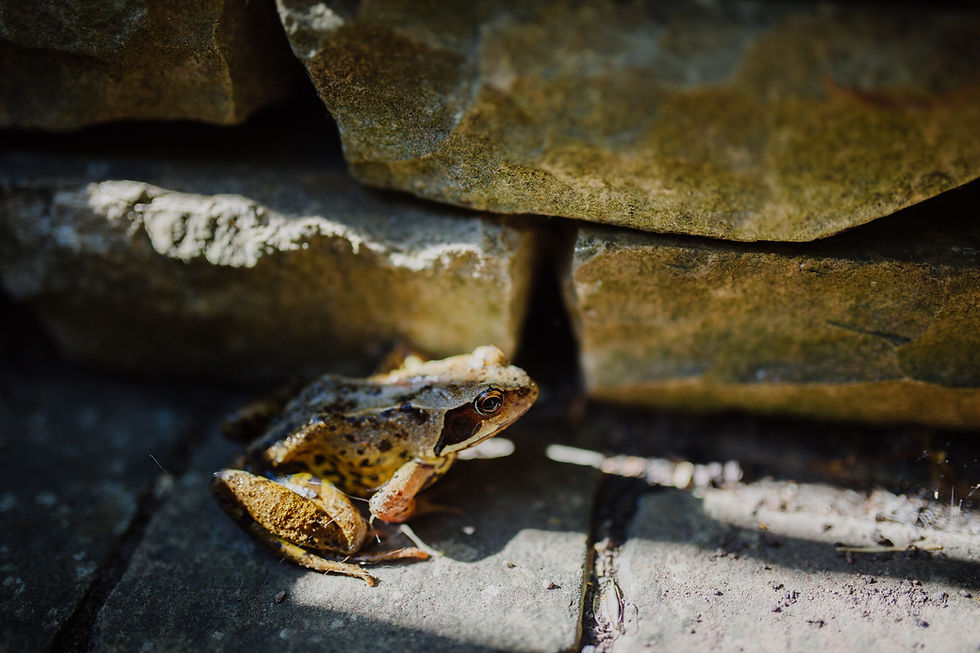A positive legacy, with a little help from the wildflowers.
- Pearce Fine Homes

- Apr 16, 2021
- 4 min read
As a new home builder, we have a responsibility to build homes for the future and we’ve learnt plenty about sustainability over our 50 years in business. We know that each and every homeowner can make a difference to the wildlife in the local area. Whether you have an allotment, a large garden or a small courtyard, there are things you can do to encourage and protect the wildlife in your local area. Read on for some tips and the chance to win seedballs from our friends at Plantaball.

At Pearce Fine Homes, we aim wherever possible, to secure land within sustainable locations, which will benefit the existing natural environment and enrich the local community. We are very conscious of the impact building can have on the environment which is why we aim to achieve a net 10% biodiversity gain with every development.
How we support and protect local wildlife
Some of the sustainable building practices we employ include planting a diverse range of native species of plants and trees, as well as forming local nature spaces. We also understand the importance of preserving and improving the ecology of each development site and implement the following practical measures.
We aim to install bird boxes into our properties because we know how important birds are to the garden ecosystem. If you haven’t got a high, sheltered area suitable for a bird box then you can still encourage your local birds to thrive by providing food in the form of fat balls or seeds. As well as bird homes we also look to add bat boxes and even ‘hedgehog highways’. A property’s fence or boundary should ideally have some gaps at the bottom for creatures like hedgehogs and frogs to move freely through the countryside. In our properties we always consider this and even create reptile refugia during and after construction to ensure local reptiles have somewhere safe to live.

Growing flowers is one of the most satisfying ways to support local wildlife. Not only do flowers add colour and scent to a garden, they provide food for many insects and of course are essential for pollinators, such as bees. A variety of flowers is important and UK native species are best. The more types you introduce, the more colours you’ll see throughout the seasons.

CGI image showing the communal garden seating area of our current development at Newton Ferrers. Learn more here
Win native wildflower seeds with Plantaball

We’ve teamed up with Plantaball, a Cornwall company whose handmade seedballs contain 20 varieties of native wildflower species. The Beeball bespoke pollinator mix is sourced from a local seed specialist in North Cornwall and is specifically created to provide nectar rich bee food. All of the wildflower species included in the Beeball are featured in the RHS Plants for Pollinators list.

The seeds are combined with peat free compost and clay which is 100% compostable and the packaging is eco friendly, made from recycled card with sugar cane labels. For a chance to win a large pack of 12 Beeballs for your garden simply enter our competition over on Instagram before 11:59 AM on Friday 23rd April 2021.
It’s not just about the flowers
Simple changes can make a big difference in your garden. Letting the grass grow instead of getting out your mower too regularly is an easy way to start. Long grass isn’t always desirable but allowing some or all of your lawn to grow for up to four weeks allows plants like daisies and white clover a chance to flower. Why not take part in #NoMowMay and lock up your mowers from May 1st and let the wild flowers bloom for the pollinators - a great initiative from Plantlife.org.uk.
As we all reduce, reuse and recycle many of us are making more use of our own compost areas within the garden. It’s great for enriching your soil and growing even better flowers and plants. There is also a huge benefit for worms, woodlice, frogs, slow worms and other insects to have such a habitat.

Children love to discover creepy crawlies and there’s no better way than to create an insect hotel in your outside space. It doesn’t have to be something from Grand Designs to impress the beetles and spiders, it can simply be piles of stones, twigs and rotting wood to create a shelter for these important minibeasts.
If you have space then a pond is a great way to boost the wildlife in your garden. It can be small, even a trough or bucket in the ground or a bigger pond with rocks or branches for easy access for smaller wildlife. Rainwater is best for a pond and who doesn’t love a waterlily!
For more information about our commitment to sustainability please read the Sustainability Policy or get in touch at enquiries@pearcefinehomes.com
“The Pearce Group understands the importance of building sustainable developments for the future. As a family business, our aim is for our legacy to last so local people can continue to benefit from and enjoyable sustainable communities” Ben Pearce, Managing Director.


Comments